To an extent, our demos are part of our software and if you download any of the four software packages, you will find they generate some very simple demos. But there are lots of demos of our models like ours out there on the web and there is plenty of software which we can use to create demos. This is especially the case with new kinds of urban theory and models, particularly those based on agent based modeling (ABM) and cellular automata (CA).
All we will do here is embed some simple demos into these web pages that we have created to demonstrate ideas about how cities grow, restructure and change using hypothetical examples. We will also refer you to a couple of libraries where you can download relevant demo software.
We will first generate 9 demos: based on fractals, CA, and ABM, all using the packages NetLogo (or the equivalent in StarLogo) which lets us generate Java code that we can embed into these pages. The models are as follows:
Fractals: Sierpinski Gasket, Tree Growth, Diffusion-Limited Aggregation (DLA); CA: Regular Diffusive Growth, Irregular Growth Waves, Urban Growth; ABM: Pedestrian Walks, Segregation, Network Connectivity.
The programs are from Uri Wilenksy’s NetLogo Site which is a tremendous pedagogic resource for models of this kind. Wilenskly runs the Center for Connected Learning and Computer-Based Modeling at Northwestern University where many of these models have been developed. The copyright for all the models rests with this Centre.
Fractals
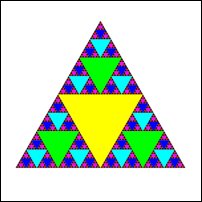
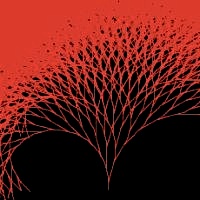
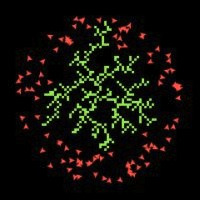 Sierpinski Gasket Tree Growth DLA
Sierpinski Gasket Tree Growth DLA
Cellular Automata (CA)

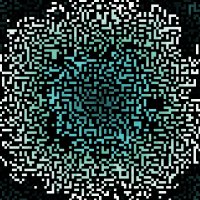
 Regular Diffusive Growth Irregular Growth Waves Urban Growth
Regular Diffusive Growth Irregular Growth Waves Urban Growth
Agent-Based Models (ABM)
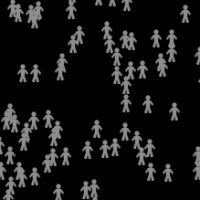
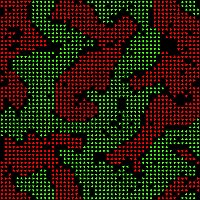
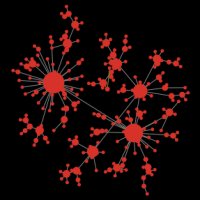 Pedestrian Walks Segregation Network Connectivity
However you must look at the urban models packages in the NetLogo library. The urban models are referred to as the Urban Suite and contain some models that are featured in my book Cities and Complexity. There is a wider project on urban models at the Netlogo site which is part of the Center for Connected Learning and these models are well worth exploring too. Click here for the wider Procedural Modeling of Cities Project.
Pedestrian Walks Segregation Network Connectivity
However you must look at the urban models packages in the NetLogo library. The urban models are referred to as the Urban Suite and contain some models that are featured in my book Cities and Complexity. There is a wider project on urban models at the Netlogo site which is part of the Center for Connected Learning and these models are well worth exploring too. Click here for the wider Procedural Modeling of Cities Project.
